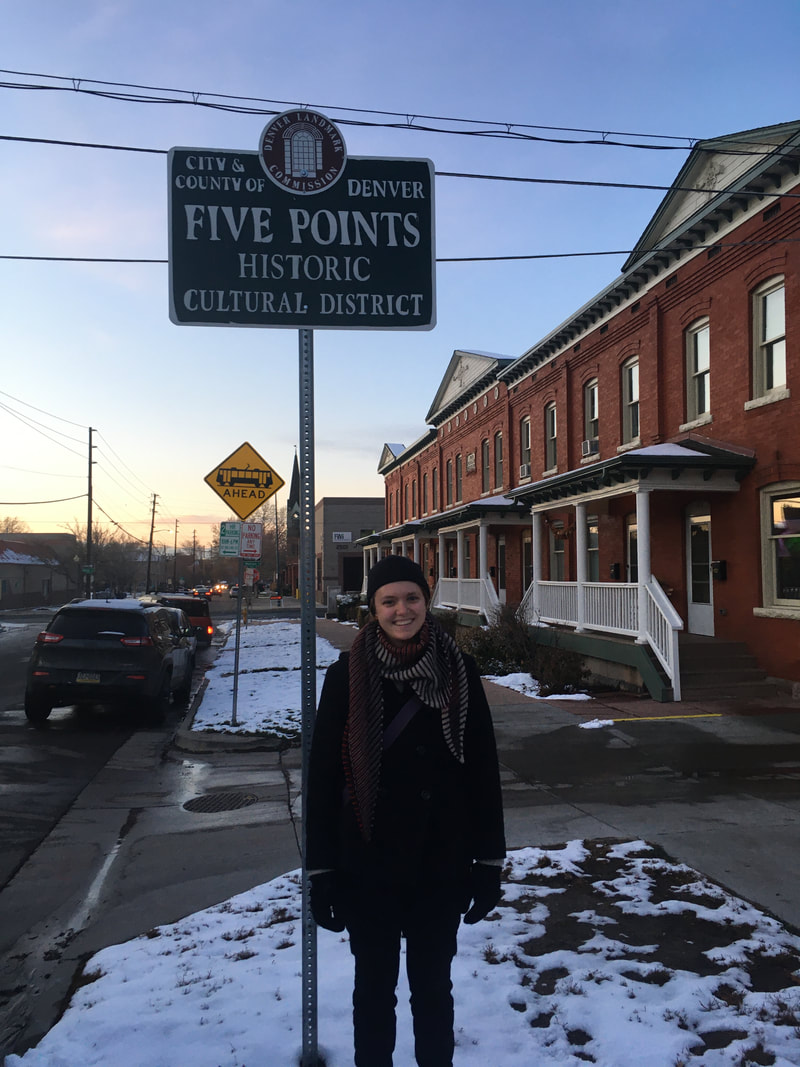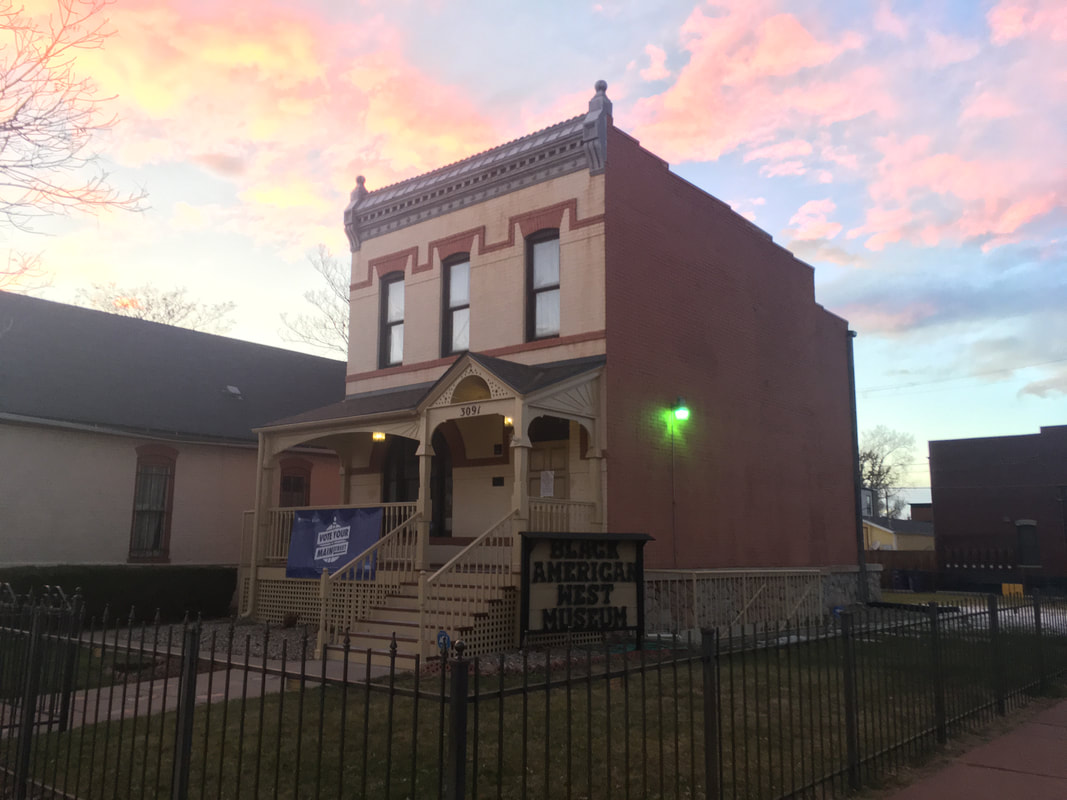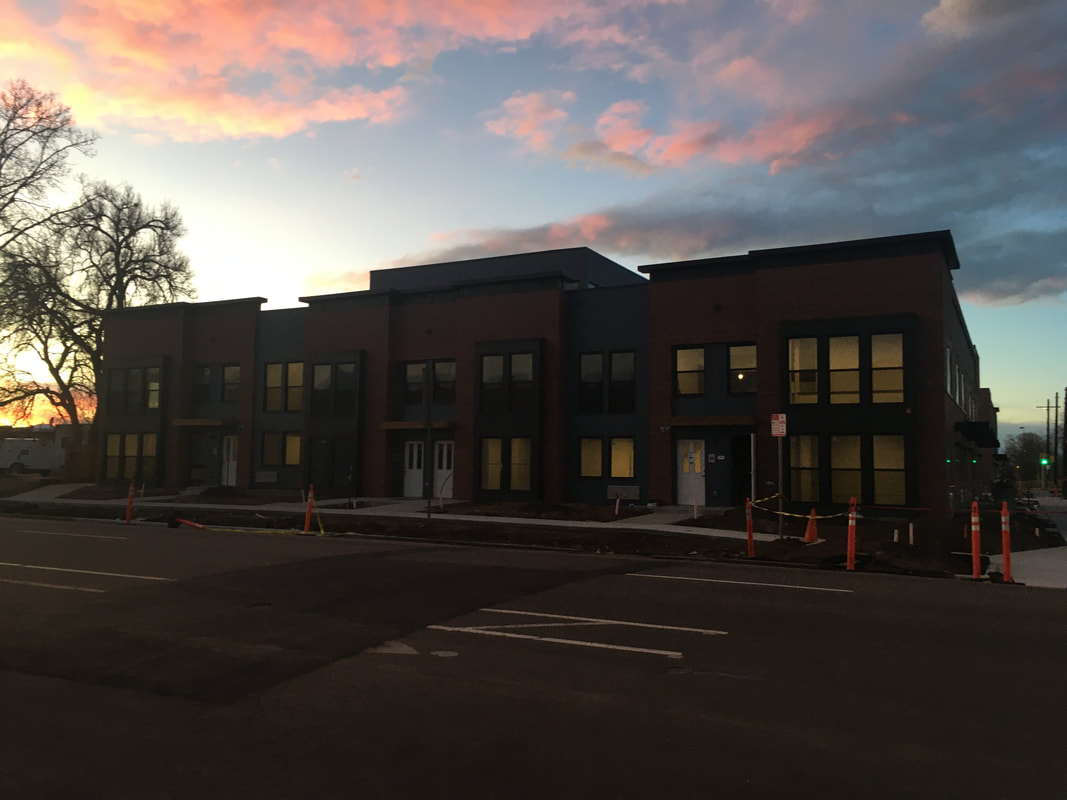It’s good news when you reject things as they are BY BECCA KRASKY Our fall retreat day opened with listening to Good News by Sweet Honey in the Rock, and an invitation by our facilitator, Rev. Anne Dunlap (UCC) to embrace the good news: good news that we were about to spend the day, together with about forty volunteers and staff from several other Christian service-year programs, reflecting on how white supremacy and institutionalized racism surround us in Denver. Side note: White supremacy is the belief that white people are better than people of color. While individuals can be “white supremacists,” it is crucial to understand that every part of American society is founded upon white supremacy, from our government and laws to our educational institutions, healthcare organizations, and religious institutions. By living in America, we have all learned practices that perpetuate white supremacy, like perfectionism, individualism, either/or thinking, fear of open conflict, and paternalism (see Tema Okun’s White Supremacy Culture). The task of white people, especially, is to unlearn the ways in which we perpetuate and benefit from white supremacy, and to work to dismantle white supremacy from within our communities, organizations, and institutions. Back to our retreat: Rev. Anne Dunlap is an organizer with Showing Up for Racial Justice (SURJ), a national organization working to build a multi-racial movement to dismantle white supremacy and create a racially-just society. We started off the morning by diving into the guiding principles of SURJ, and acknowledging that the land we were on, at Saint John’s Episcopal Cathedral, is the ancestral home of the Cheyenne, Ute, and Arapaho peoples. Anne drew a pyramid of the White Supremacist Capitalist Heteropatriarchy, and we explored the interconnections between all these systems of oppression, building a foundation of theory to underpin the rest of the training. Our next session was my favorite: an examination of the Book of Esther. We performed skits based on various sections of the story, and then discussed how power was intertwined into the stories of King Ahasuerus, Queen Vashti, Esther, and Mordecai. We traced the construction of political systems to control people and their bodies, the massive accumulation of wealth, the manipulation of laws to protect power, threats to destroy an entire people, and the expectation that women take huge risks and allow men to receive all the glory and recognition. We’re still dealing with these same oppressive structures today. We also identified the ways in which the Jews and women used their power of resistance, to say “We will not be silent about our oppression. We will break the law, if that’s what it takes.” We ended the session linking this ancient story with our own lives, asking “What is our resistance for? Are we resisting in order to maintain our place in the machinery of death, or for a place in the kingdom of God? Was Esther? Was Vashti? Was Jesus?” With hearts full of questions and stomachs rumbling, we took a lunch break. After lunch, we reflected on how white supremacy relates to our work at our placement sites, and in our volunteer homes. We wondered: Why are there so many white people in our programs and working at our placements, when the folks we serve are mainly people of color? Are our placement organizations perpetuating white supremacy? Are our volunteer programs? Is Loretto? My Loretto housemates Emmy, Reilly, and I reflected on how we can work to dismantle white supremacy in our home and in our work. We live in the Five Points neighborhood of Denver, a historically African American community. It has been massively gentrified over the past decade, the process by which communities of color are displaced by rising rents, caused by an influx of relatively young, affluent, college-educated white people. In Five Points, the signs of gentrification are everywhere: identical condos rising on abandoned lots, the proliferation of new yoga studios, and a brewery on every corner. I can’t help but reflect on my role in this gentrification. Who lived in our house fifty years ago? Probably a Black family. Who are we, the Denver Loretto Volunteers, displacing? The very people we’d hoped to serve? As new residents of the neighborhood, it is our responsibility to know where we are, and to acknowledge our role in displacement. Denver is in the midst of an affordable housing crisis. We have many neighbors who live in the park across the street, and the shelters downtown are full to capacity. All while there’s an empty bedroom in our house, and throughout the city, unaffordable condos springing up to house white people, moving to Denver from across the country. My heart is heavy with frustration for how impossibly complicated it seems to be to ensure that every person has access to safe, healthy, affordable housing. White supremacy, racism, and housing justice are tangled tightly together, and this one day of reflection and retreat was only a reminder of how much work is left to be done. Reilly, Emmy and I committed to learning more about our neighborhood, and to find more ways to get involved with dismantling white supremacy in Denver, in our families, and within Loretto. We’re also hanging the list of characteristics of white supremacy culture from Tema Okun on the wall in our kitchen, and going to hold ourselves and each other accountable to not upholding those practices, in our personal and work lives. We closed the day with a ritual making herbal sachets of comfrey (to heal outer and inner wounds), borage (to revive our hearts and find courage), and rose (to embrace the divine feminine, move through grief, and keep our hearts open and soft). With the inspiration of Queen Esther and Queen Vashti, the music of Sweet Honey in the Rock, and our healing sachets to accompany us, we walked home along the streets of Denver, maybe with more questions than answers, but humming the melody it’s good news when we take on the responsibility to reshape our world… Becca Krasky (she/her) is from Minneapolis, Minnesota. She crossed the mighty Mississippi River to attend Macalester College in St. Paul, MN, where she majored in Environmental Studies and Geography. Becca works at Angelica Village, a nonprofit building community through housing and support of refugee youth, formerly houseless families, and refugee/immigrant families, where she manages the garden and sustainability projects. When she’s not learning how to grow vegetables, Becca fills her free time with climate justice activism, bicycling, reading about permaculture and Catholic social justice movements, and brewing kombucha.
1 Comment
Mary Swain
10/31/2020 08:09:28 am
Becca, Keep thinking....white supremacy...what to do.....thanks for all you do at Angelica Village. Mary
Reply
Your comment will be posted after it is approved.
Leave a Reply. |
In Their Own WordsWe invite you to get to know Loretto Volunteers and the program here. Volunteers introduce themselves and reflect on their experiences. |




